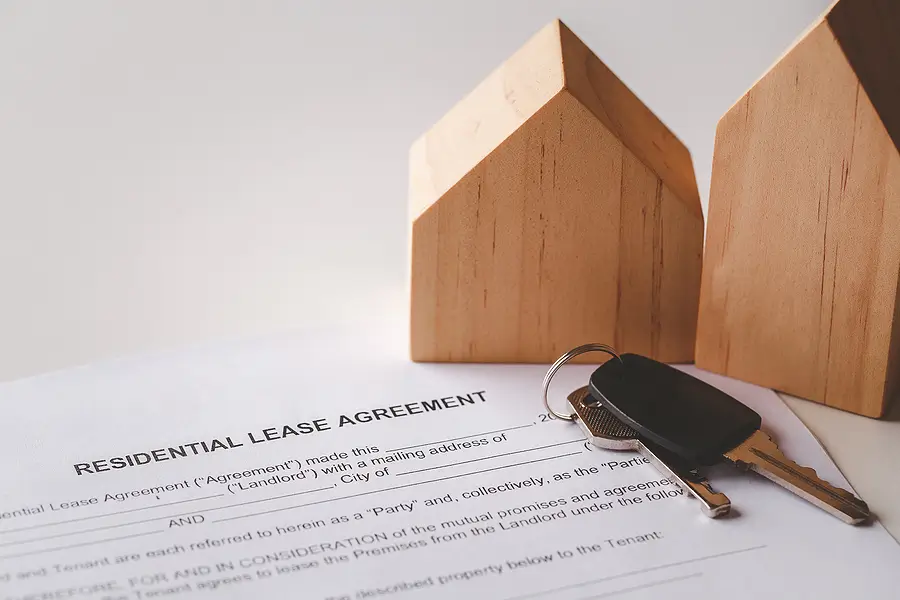Are you a landlord or tenant unsure about the differences between a lease renewal and an extension? Many people find themselves in this situation, trying to decide the best course of action when a lease approaches its expiration date.
A lease renewal creates a new agreement with updated terms, while a lease extension keeps the existing lease agreement in place but extends its duration. Both options have pros and cons, from adjusting rent prices to maintaining tenant stability, and the right choice depends on your goals and the Houston rental market.
Choosing wisely can help you maximize income and keep good tenants. Your tenants can benefit from stability and clarity, allowing you to make informed decisions that fit your needs.
Read on to know more about the pros and cons of lease extension vs lease renewal so you can make the best choice for your Houston rental property.
Pros and Cons of Lease Renewal in Houston
A lease renewal refers to creating a new lease agreement that effectively replaces the old one. This is more than just a reset—it’s an opportunity for both landlords and tenants to revisit the contract terms and make adjustments that align with today’s conditions.
Pros
1. Adjustable Terms to Match Current Market Conditions
A lease renewal allows landlords to re-evaluate the rental terms in light of the current rental market. For instance, if property values in Houston have risen due to high demand or neighborhood development, landlords can adjust rent prices to reflect these changes and charge a fair price without locking into outdated rates.
This keeps rental income competitive, avoiding financial losses from stagnant pricing.
2. Longer Stability for Landlords and Tenants
Renewals usually involve extending the lease for a longer duration, such as one or two years. This stability is beneficial for both parties—you can enjoy consistent rental income without frequent tenant turnover while your tenants gain the assurance of long-term housing, avoiding the hassle of finding a new apartment or moving.
3. Updated Agreements Ensure Compliance with Laws
Rental laws and local ordinances in Houston can change over time. Landlords can incorporate legal updates by signing a new lease to avoid potential disputes or penalties. For example, if a new regulation requires additional smoke detectors in rental properties, this clause can be added during renewal.
Both parties are protected under current legal standards, reducing liability risks.
Cons
1. Possible Rent Increases May Push Tenants Away
While aligning rent with current market conditions benefits landlords, it can backfire if the rent increase is significant. Tenants may find the new rate unaffordable and choose to move out instead of renewing, resulting in high turnover costs from losing tenants and needing replacements.
2. Time-consuming for Both Parties
Drafting and negotiating a new lease agreement can take time. Landlords must carefully outline updated terms, and tenants may request clarifications or changes, leading to delays. For instance, if you add a new pet policy, the tenant may want to negotiate terms if they already have a pet. This back-and-forth can stretch out the process.
3. Risk of Losing Tenants Due to Unfavorable Terms
Changes in terms, such as rent adjustments or stricter policies, might prompt tenants to look elsewhere. Losing a reliable tenant means you can face expenses like advertising for the rental, screening new tenants, and possibly dealing with vacancy periods.
How to Make Lease Renewal Work
To minimize risks and maximize benefits, landlords should:
- Conduct regular market research to ensure rent increases are reasonable.
- Communicate changes clearly with tenants, highlighting the benefits of staying.
- Consult professionals, like Terra Residential Services, to ensure compliance with updated laws and negotiate favorable terms.
Ideal for: Landlords who want to maximize returns on their rental unit and ensure compliance with updated legal requirements. It's also great for tenants who value stability and are open to renegotiating terms for a better fit.
Pros and Cons Of Lease Extension Every Landlord Should Know
A lease extension continues the existing lease agreement but extends the expiration date. It’s a more straightforward option, as the terms remain unchanged. Extensions are often used as temporary solutions when both parties need flexibility.
Pros
1. Simpler Process
It keeps things straightforward because it does not require drafting a new agreement. Instead, the landlord and tenant agree to extend the lease agreement for a set period, typically with the same terms and conditions.
This saves time for both parties and avoids legal or administrative complications.
2. Maintains Continuity
The rent amount, rules, and other conditions remain unchanged, making it easier for tenants to continue with their current living arrangements and for landlords to avoid disruptions. This stability is appealing when both parties are satisfied with the existing terms.
3. Short-Term Solution
Lease extensions are ideal for situations where long-term commitments are unnecessary or impractical. For example, you might plan to renovate or sell the rental property, or a tenant might want to relocate soon for work. Extending the lease for a few months provides flexibility while accommodating both parties’ plans.
This flexibility avoids locking into a long-term lease while addressing immediate needs.
Cons
1. Potential Lost Revenue
Landlords may miss out on additional income by extending a lease without adjusting the rent to reflect current market conditions. Over time, this lost income can add up significantly, especially in competitive markets where rent adjustments are common.
2. No Updates to Terms
A lease extension continues the same terms as the original lease, which can become outdated. This means landlords cannot include clauses that address changes in local ordinances or improvements to the property.
An outdated lease agreement can lead to disputes or legal vulnerabilities for landlords.
3. Temporary Fix
Lease extensions typically cover short periods, which can lead to frequent renegotiations and uncertainty. This may create unnecessary stress for landlords and tenants. This lack of long-term security can disrupt planning and result in higher turnover costs, such as advertising for new tenants or preparing the property for new occupants.
Making Lease Extensions Work
To use lease extensions effectively, landlords should:
- Limit extensions to situations requiring short-term flexibility, such as pending property sales or renovations.
- Evaluate whether an extension might delay necessary updates to the agreement, such as rent adjustments or legal compliance.
- Clearly communicate with tenants to manage expectations and ensure smooth transitions when the extension ends.
Ideal for: Landlords and tenants seeking a temporary arrangement. This is also advisable when no significant changes are needed, and both parties are satisfied with the current terms.
Secure Stability and Profitability by Choosing the Right Lease Term
Deciding between a lease renewal and a lease extension isn’t always straightforward. Both options have advantages and drawbacks, depending on your goals and the specific circumstances of your property.
For landlords, the choice can mean maximizing returns and ensuring tenant retention. For tenants, it’s about balancing affordability with stability.
At Terra Residential Services, we specialize in managing rental properties across Houston. From handling lease renewal terms to ensuring compliance with local ordinances, we provide comprehensive support for landlords.
Here’s how we make your life easier:
- Crafting tailored lease agreements that balance tenant satisfaction and profitability.
- Conducting market analyses to determine competitive rent amounts.
- Managing tenant relations and ensuring legal compliance.
Whether you need help drafting a new rental agreement or deciding on the best course of action for a current lease, we’ve got you covered.
Need expert advice? Contact Houston Property Management today, and let us help you confidently navigate the complexities of Houston’s rental market.
Related Articles
How to Gracefully Navigate Lease Enforcement at Your Houston, TX Rental Properties
Rethinking Your No Pet Policy as a Landlord: The Pros and Cons
When Does Wear And Tear Impact Your Katy, TX Security Deposit


